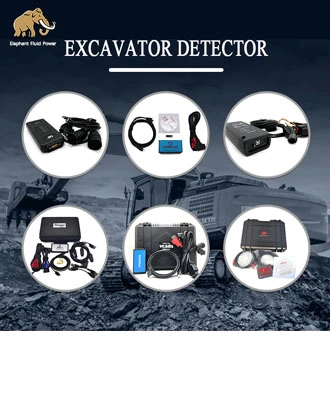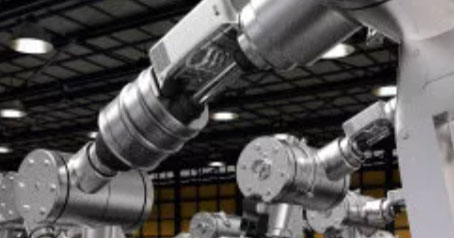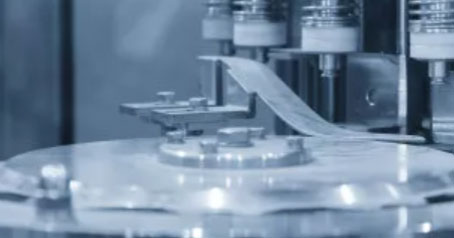The reliability and efficiency of hydraulic systems hinge on the quality of their components, and hydraulic spare parts are no exception. Selecting the right hydraulic spare parts is crucial for maintaining system integrity and minimizing downtime. In this blog, we'll provide you with a comprehensive guide to help you navigate the process of selecting the ideal hydraulic spare parts for your specific needs.
Assessing Component Compatibility
Before diving into the selection process, it's essential to assess the compatibility of the hydraulic spare parts with your existing system. Gather information on the specific part numbers of the components you need to replace. This information ensures that you're sourcing the correct spare parts. Ensure that the specifications of the spare parts match those of the components they are replacing. This includes dimensions, materials, pressure ratings, and flow capacities. Refer to te manufacturer's recommendations for spare parts. Some manufacturers provide guidelines on compatible spare parts that are tested and approved for use in their systems.
Sourcing Quality Spare Parts
Sourcing high-quality hydraulic spare parts is essential to ensure optimal system performance and longevity. Choose suppliers with a solid reputation for providing genuine, high-quality spare parts. Reputable suppliers prioritize authenticity and quality assurance. Opt for genuine components from reputable manufacturers. Genuine spare parts are designed to match the original components, ensuring compatibility and reliable performance. Inquire about the supplier's quality assurance processes. Ask about their testing procedures and certifications that guarantee the spare parts meet industry standards.
Evaluating Supplier Support and Expertise
Supplier support and expertise are crucial for selecting and utilizing the right hydraulic spare parts. Choose suppliers with a dedicated technical support team. A responsive team can assist with inquiries, recommend suitable spare parts, and provide guidance on installation and maintenance. Check if the supplier provides detailed documentation for the spare parts, including specifications, installation instructions, and compatibility guidelines. Engage with the supplier's technical team to discuss your system's requirements. Expert guidance can help you identify the most suitable spare parts for your specific application.
Considering Cost and Value
Balancing cost and value is essential when selecting hydraulic spare parts. While cost is a factor, prioritize value over the cheapest option. High-quality spare parts might have a higher upfront cost but offer better long-term performance and cost-effectiveness. Consider the total cost of ownership, which includes factors such as maintenance, downtime, and potential system failures. Investing in quality spare parts can lead to lower total costs over time. Inquire about the supplier's warranty and return policies for spare parts. A supplier that stands behind their products with warranty coverage offers added confidence in the parts' quality. Keep comprehensive documentation of spare parts, including part numbers, specifications, and usage history. Implement a tracking system to monitor spare parts usage and replacements. Categorize spare parts based on type, function, and criticality. This categorization simplifies the retrieval process during repairs and maintenance.
The selection of hydraulic spare parts is a process that demands careful consideration, research, and attention to detail. By assessing compatibility, sourcing quality components, evaluating supplier support, considering cost and value, and maintaining an organized inventory, you can ensure that your hydraulic systems continue to operate reliably and efficiently. The investment in high-quality hydraulic spare parts not only minimizes downtime but also contributes to the overall success and productivity of your operations.
 French
French
 Portuguese
Portuguese
 Russian
Russian
 German
German
 Spanish
Spanish
 Japanese
Japanese
 Korean
Korean
 Irish
Irish
 Greek
Greek
 Turkish
Turkish
 Italian
Italian
 Danish
Danish
 Romanian
Romanian
 Indonesian
Indonesian
 Czech
Czech
 Afrikaans
Afrikaans
 Swedish
Swedish
 Polish
Polish
 Basque
Basque
 Catalan
Catalan
 Esperanto
Esperanto
 Hindi
Hindi
 Lao
Lao
 Albanian
Albanian
 Amharic
Amharic
 Armenian
Armenian
 Azerbaijani
Azerbaijani
 Belarusian
Belarusian
 Bengali
Bengali
 Bosnian
Bosnian
 Bulgarian
Bulgarian
 Cebuano
Cebuano
 Chichewa
Chichewa
 Corsican
Corsican
 Croatian
Croatian
 Dutch
Dutch
 Estonian
Estonian
 Filipino
Filipino
 Finnish
Finnish
 Frisian
Frisian
 Galician
Galician
 Georgian
Georgian
 Gujarati
Gujarati
 Haitian
Haitian
 Hausa
Hausa
 Hawaiian
Hawaiian
 Hebrew
Hebrew
 Hmong
Hmong
 Hungarian
Hungarian
 Icelandic
Icelandic
 Igbo
Igbo
 Javanese
Javanese
 Kannada
Kannada
 Kazakh
Kazakh
 Khmer
Khmer
 Kurdish
Kurdish
 Kyrgyz
Kyrgyz
 Latin
Latin
 Latvian
Latvian
 Lithuanian
Lithuanian
 Luxembourg
Luxembourg
 Macedoniar
Macedoniar
 Malagasy
Malagasy
 Malay
Malay
 Malayalam
Malayalam
 Maltese
Maltese
 Maori
Maori
 Marathi
Marathi
 Mongolian
Mongolian
 Burmese
Burmese
 Nepali
Nepali
 Norwegian
Norwegian
 Pashto
Pashto
 Persian
Persian
 Punjabi
Punjabi
 Serbian
Serbian
 Sesotho
Sesotho
 Sinhala
Sinhala
 Slovak
Slovak
 Slovenian
Slovenian
 Somali
Somali
 Samoan
Samoan
 Scots Gaelic
Scots Gaelic
 Shona
Shona
 Sindhi
Sindhi
 Sundanese
Sundanese
 Swahili
Swahili
 Tajik
Tajik
 Tamil
Tamil
 Telugu
Telugu
 Thai
Thai
 Ukrainian
Ukrainian
 Urdu
Urdu
 Uzbek
Uzbek
 Vietnamese
Vietnamese
 Welsh
Welsh
 Xhosa
Xhosa
 Yiddish
Yiddish
 Yoruba
Yoruba
 Zulu
Zulu







